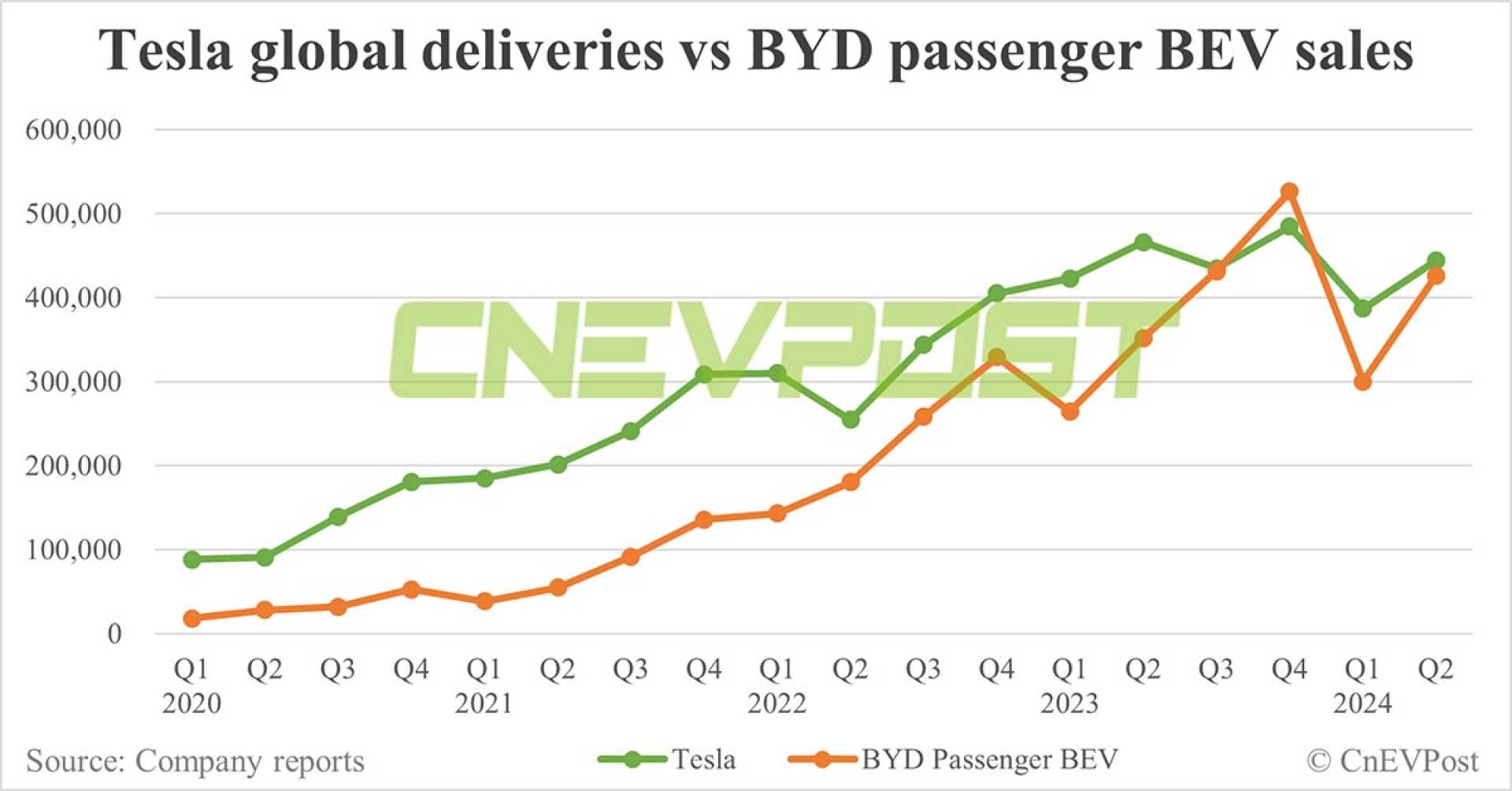Business
BYD Plans Global Expansion Amid Challenges for Tesla and Climate Policies

BEIJING, China – BYD, China’s leading automaker, announced plans to sell half of its vehicles outside China by 2030. This expansion will focus on Latin America and Europe, as trade barriers continue to limit Chinese automakers from entering the U.S. market.
Meanwhile, Tesla, one of BYD’s main competitors, is facing challenges. Shipments from its Shanghai plant have decreased for the seventh month in a row, with a reported 58,459 cars shipped in April, a 6% decline from last year.
In the United States, a coalition of states, including Washington, Colorado, and California, has filed a lawsuit against the Trump administration. They allege that federal agencies unlawfully froze funds intended for electric vehicle charging stations, hindering the growth of the EV industry in the states.
In China, the government is actively pursuing innovative energy storage solutions, such as electrochemical and hydrogen energy storage, with expectations of exceeding 30 gigawatts (GW) by 2025. This initiative aims to enhance energy security and promote large-scale commercial applications.
Last year, new energy storage projects reached about 43.7 GW, making up 59% of the global market share. Foxconn, the Taiwanese electronics manufacturer, has also entered the electric vehicle sector after forming a joint venture with Mitsubishi Motors. This partnership will produce EVs in Taiwan, anticipated for release in 2026.
In India, the National Green Tribunal has prohibited thermal power plants from changing their coal source without environmental clearance. This decision reverses a policy allowing flexibility in coal sourcing, reflecting concerns around accountability and environmental regulations.
Moreover, Trump’s administration has redirected U.S. support away from clean energy initiatives in developing countries, instead backing coal power projects abroad. Critics argue this will create a greater reliance on fossil fuels in those nations.
As India seeks to expand its coal-powered electricity, it plans to increase its capacity by 80 GW by 2031-32. Coal India is set to invest in clean energy projects as part of its effort to achieve net-zero carbon emissions by 2070.
Meanwhile, recent data shows that Germany’s clean energy production has declined significantly in 2025, prompting an increase in fossil fuel usage to compensate for the shortfall. Authorities may now consider requiring solar panels on new car park structures in the UK to bolster renewable energy generation.
The landscape of the automotive and energy sectors remains dynamic, with key players adapting to the changing regulatory and market environments.












